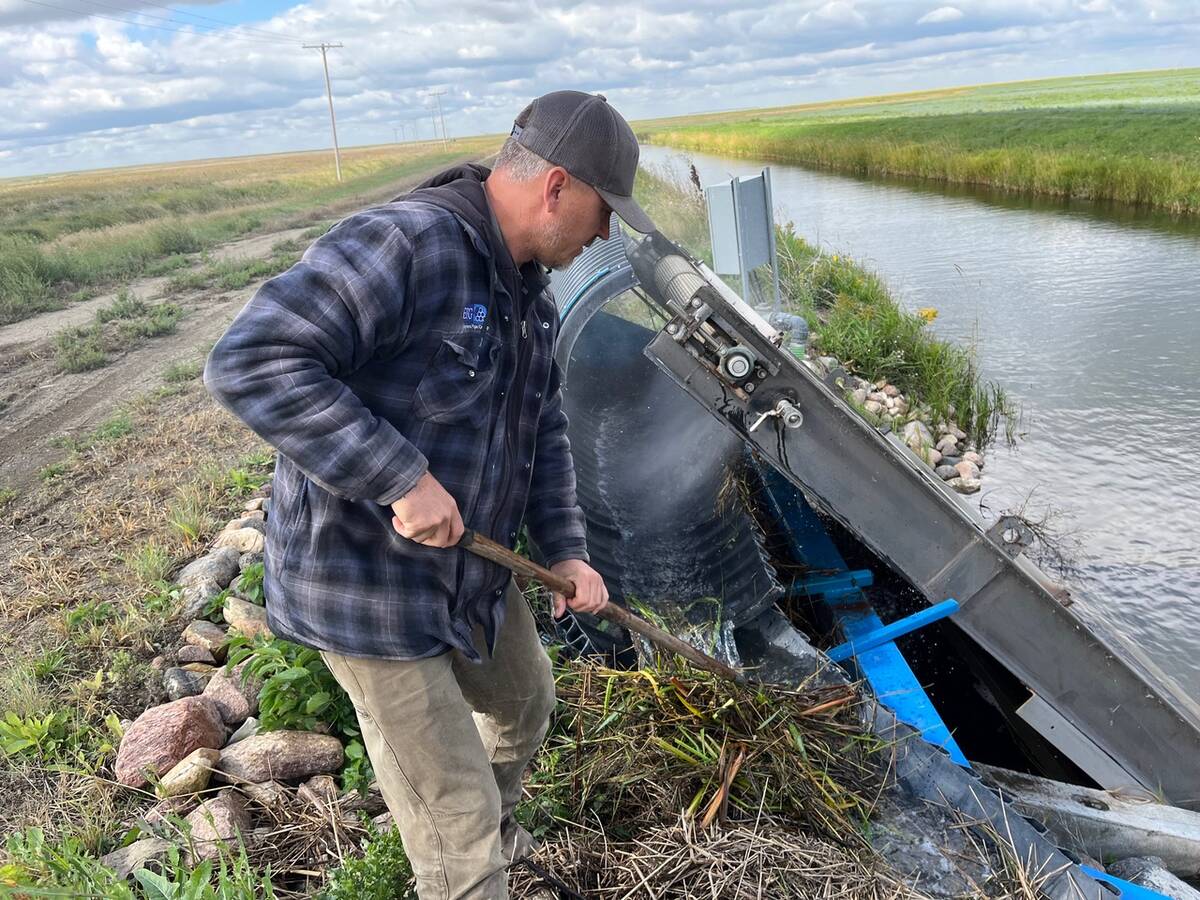It’s a day Gordon Bulmer won’t soon forget.
On Sept. 7, the general manager of the Good Spirit Rural Economic Development Association had about as good a day as an economic development officer can have.
Two major international companies announced plans to build two $100 million oilseed crushing plants in the heart of his district.
“For economic development people in rural Saskatchewan, if you get one project like this in a lifetime, that’s really something,” he said with a chuckle. “Two in the same day? That just doesn’t happen.”
Read Also

Saskatchewan farmer uses tile drainage to manage water
The integration of both irrigation and tile drainage results in higher yields, water efficiency, improved soils and less nutrient runoff, says one producer.
JRI International and Louis Dreyfus Canada both announced plans to build 850,000 tonne capacity canola crushing plants at Yorkton, Sask. Site work is to begin this fall and both plants plan to open for business in late 2008 or early 2009.
Local officials, provincial government representatives and canola growers in both Saskatchewan and Manitoba welcomed the news.
“This is a good news story for canola growers and for the whole industry,” said Bill Ross, executive manager of the Manitoba Canola Growers Association.
While the plants will be located in Yorkton, both companies say they’ll be drawing canola from Manitoba as well as Saskatchewan to meet what is expected to be strong domestic and international demand from the food oil and biodiesel sectors.
However, Ross was puzzled why both companies would locate in the same place.
“It could be good for farmers, if they’re competing for canola and the price goes up,” he said. “On the other hand we wouldn’t want to see them compete to the point that one has to close after a couple of years.”
Judie Dyck of the Saskatchewan Canola Growers Association said only good things can come from the addition of two major buyers to the canola scene in Western Canada
“It will give producers options in terms of who they want to do business with and that leads to more competition,” she said. “It may or may not lead directly to higher prices, but competition is always good.”
A number of industry officials expressed concern about the wisdom of two plants locating next to each other, rather than spreading the wealth among different areas.
But University of Saskatchewan agricultural economist Richard Gray said it’s not all that unusual and may actually encourage the development of local infrastructure and expertise that benefits both companies.
He likened the situation to automobile or farm machinery dealerships, which often locate in a single business area.
“Now when farmers think of marketing their canola they’ll think of Yorkton first, because there’s two plants there,” he said.
In addition to farmers, the local economy will benefit as well. The two plants together will employ about 100 people full-time, many in high paying positions.
As well, there will be spin-off benefits in trucking, mechanics and the service and retail sectors.
Some expressed concern whether enough canola will be produced to supply the two new plants, but industry experts say there will be ample supplies due to new high yielding varieties and increased acreage resulting from expected higher prices.
















